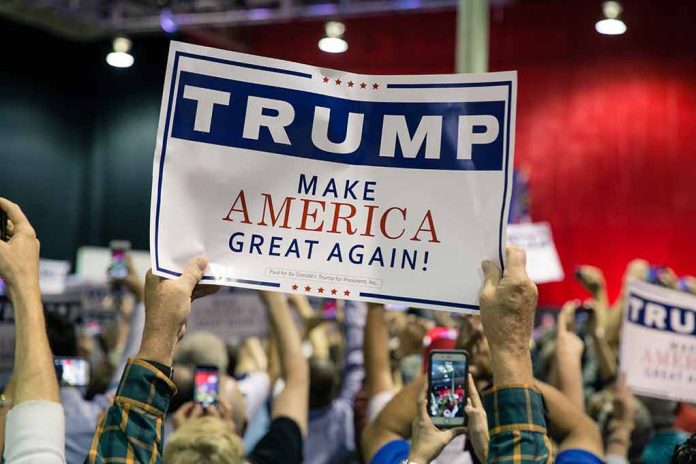
Donald Trump’s comparison to Nazis at recent MAGA events represents a significant mischaracterization of his political persona and tactics.
At a Glance
- The link between Trump and Nazis is used to mislead and influence public opinion.
- Key figures have criticized Trump’s rhetoric as reminiscent of Nazi language.
- Trump’s political strategies starkly differ from historical Nazism.
- Comparisons to Hitler may provoke violence, warns Robert F. Kennedy Jr.
- Trump’s supporters largely remain undeterred by these accusations.
Examining Trump’s Rhetoric
A frequent but contested accusation is the comparison of Trump’s speeches and actions to those of historical Nazis, specifically referencing a MAGA event in Madison Square Garden. Critics highlight Trump’s anti-immigrant rhetoric, associating his language with Adolf Hitler, drawing on phrases like “destroying the blood of our country.” This allusion is reinforced by Trump’s remark on immigrants echoing controversial sentiments.
However, many of Trump’s supporters see these comparisons as exaggerated attempts to discredit his policies on national security and border control. For them, Trump’s rhetoric on immigration resonates as a call to protect American jobs and uphold the rule of law. His hardline stance is seen not as hate-driven but as a defense of American sovereignty and a response to the economic and security challenges posed by unchecked immigration.
The portrayal of Democrats as “vermin” is also noted for its historic implications, drawing parallels to Hitler’s dehumanization tactics. Trump’s alleged admission that he would abuse his powers if reinstated adds fuel to the debate. Despite these claims, many of Trump’s supporters defend his language as assertive rather than extremist, with polls indicating a significant portion of Republicans are more likely to support him as a result.
DARVO and Political Manipulation
Some scholars argue that Trump’s strategies often align with the DARVO framework — Deny, Attack, Reverse Victim and Offender. They claim that this approach is used not only in gender-related conflicts but across his political strategy, and supposedly allows him to shape public perception, casting doubt on the credibility of his critics.
Yet, many of Trump’s supporters view these tactics differently, seeing them as a response to what they perceive as constant, biased attacks by the media and political opponents. For them, Trump’s rhetorical approach is less about manipulation and more about pushing back against an establishment they believe routinely disregards or misrepresents conservative voices and values.
Public and Political Reactions
The use of Nazi parallels has escalated public and political tensions. Prominent figures, including Robert F. Kennedy Jr., have cautioned against such comparisons, noting the potential for inciting violence against Trump. Additionally, when a projection at Madison Square Garden suggested “Trump praised Hitler,” it intensified the controversy, drawing both condemnation and sympathy.
The opposition from Trump’s allies, however, remains resilient. These accusations, while incendiary, have not deterred Trump’s base from supporting him. Figures like JD Vance have walked back previous comparisons, reflecting changing perspectives or strategic decisions ahead of electoral campaigns.














